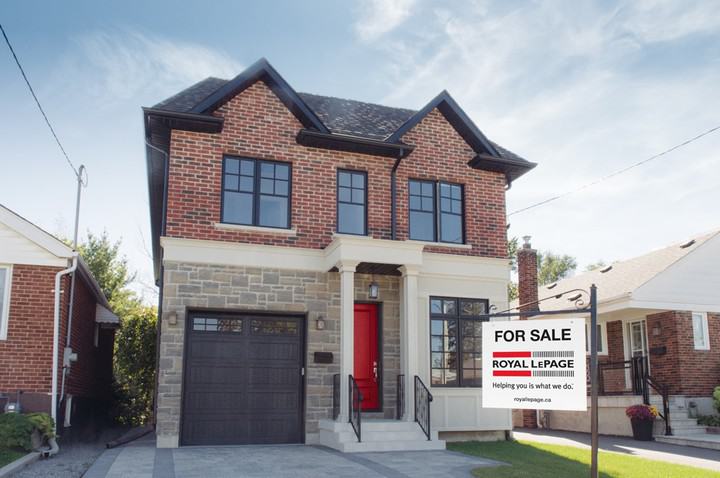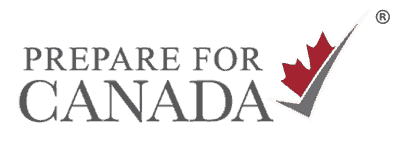
The question “how much mortgage can I afford?” is quite different from “how much mortgage can I get?” So, it’s important to understand the risks involved when a lender offers you a mortgage that is more than you need or expected. When buying a home for the first time, it’s important to consider all of the related costs and expenses. And, when you factor in all of the costs, you’ll be in a better position to answer, “how much mortgage can I afford?”
It may seem like great news to get approved for a higher mortgage amount than you expect. But, this can lead to overspending on housing when you get more money than you need.
Advertisement:
The Key Question: How Much Mortgage Can I Afford?
Buying a home in Canada is a big dream for many newcomers! But, buying a home that is more than you can afford, can turn that dream into a financial nightmare. If you have a good credit history, and a healthy down payment, your lender may approve you for a mortgage that is higher than what you need. For example, you may have a personal budget of $800,000 to buy your home. And, your lender may pre-approve you for $1,000.000. To get a general idea of how much mortgage you can afford, use this mortgage calculator.
Advertisement:
But, does that mean you should borrow that much so you can buy a more expensive home? You need to factor in other costs so that you can answer this key question: how much mortgage can I afford?
This is a common mistake that many first-time homebuyers make. And, this often leads homeowners to a situation where they are “house rich and cash poor”. In other words, they are spending between 30 – 40% (or more) of their total income on:
- mortgage payments
- property taxes
- maintenance and utilities.
Related Posts:
5 Tips to Get the Best Mortgages Rates in Canada
Building Credit History in Canada
Do Newcomers Need to File an Income Tax Return?
Advertisement:
Banking in Canada: Your Financial First Steps
When you spend too much of your income on housing, it means you’ll be “cash poor”. And this means you’ll have very little room to afford other expenses such as:
- car payments
- a planned vacation
- home furnishing or decorating (especially if you’re moving into a larger space).
Or, you end up making these purchases on credit, increasing your debt level, and possibly affecting your credit history.

In addition, you need to consider your other expenses such as daycare, saving for retirement, or saving for your children’s education. All important expenses that you may also be saving for.
So, before buying your home, carefully consider how much you can afford and what other financial obligations you have.
Costs to Include When Asking: How Much Mortgage Can I Afford?
Closing costs are typically paid at the end of the homebuying process. Often, people overlook the closing cost that can become expensive. You can expect to pay closing costs in the range of 1.5 – 4 % of the selling price of your home. So, it’s important to include these costs when calculating how much mortgage you can afford.
Closing costs are one-time only expenses that may include:
Home Inspection Fee:
Getting a home inspection is not required. However, if you are buying a home, it may be a smart thing to consider. A home inspection can provide you with information about the state of the house. You may discover that you will have to spend money on repairs either in the short-term or long-term.
You also want to find out what recent repairs or renovations were completed. A home inspection can provide information about the: insulation; electrical work; and structure.
If the home inspection reveals costly defects, you can try to negotiate with the seller to make the repairs or reduce the selling price.
Property Taxes:
Homeowners in Canada must pay taxes to fund services such as police and fire, schools, public education, transit, parks and recreation, road maintenance, and many other services. And, property taxes are a major source of revenue for municipalities in Canada.
On top of your mortgage payments, you will have to pay property taxes. Most lenders will collect the property tax and this helps you to avoid a large and unexpected tax bill when your annual taxes are due. So, it’s important to factor your property taxes into your mortgage payments as well.
Legal Costs to Buy a Home:
These legal costs include fees for services that your real estate lawyer will do such as:
- Conduct a title search
- Review all legal documents
- Review the Agreement of Purchase or Agreement of Sale (for condominiums)
- Draft a title deed
- Prepare the mortgage and registration fee
- Calculate the land transfer fee.
Land Transfer Fee:
This is a tax that home buyers in most provinces must pay. And, It is usually based on the purchase price of the home.
Property Insurance
Since your lender has a large stake in your home, they will often require you to purchase insurance against fire and weather-related damage. It is also a good idea for you to purchase ‘contents’ insurance to protect your valuables.
Mortgage Life Insurance
This is special insurance coverage to cover the cost of your mortgage in the event of death or severe illness is available from most lenders.
Moving Costs:
Your moving costs will vary depending on whether you rent a truck and move your belongings yourself, or if your hire professional movers. If you hire movers, you can expect to pay a minimum of $1,000 depending on the weight of your belongings, travel distance, and even your moving date.
You can reduce your moving costs if you rent a truck, and kindly ask your friends and family to lend you a hand on moving day!
Utility Bills:
When you set up your utilities, you will be charged a deposit to hook up services and replace the previous owner’s name with your name on the bill.
- Property taxes
- Mortgage insurance
- Maintenance fees (for condos)
- Repairs (the roof for homeowners)
- Landscaping and lawn care
- Routine and general maintenance
Many potential homeowners overlook these additional costs, and they can quickly add up. So it’s important to include these costs when considering how much mortgage you can afford.
Key Takeaways from How Much Mortgage Can I Afford?
- Know how much mortgage you can afford. Remember, this is different than how much mortgage you can get!
- Overspending on your housing needs will mean you’ll have very little over after you pay your mortgage. And, this means you’ll have little room for other monthly expenses. This can create financial insecurity and stress.
- Remember to add in other costs that are associated with buying a home. Before you know it, all of these costs can add up. So be sure to budget for the additional home buying expenses.
- When you have a mortgage that’s within your financial means, you’ll have peace of mind knowing that you can afford other expenses (especially unexpected expenses).
It’s important to manage all of the costs involved when buying a home. And, knowing how much mortgage you can afford can help you to make the best financial decision for you and your family.
Check out our financial first steps resource page for resources and information to help you achieve your financial goals in Canada!
Corinna Frattini is the content marketing strategist at Prepare for Canada and contributes articles related to working in Canada. With a background in human resources and leadership development, her articles focus on what Canadian employers seek and how newcomers can continue their careers in Canada.


